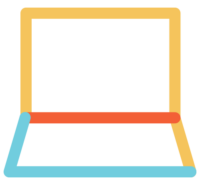
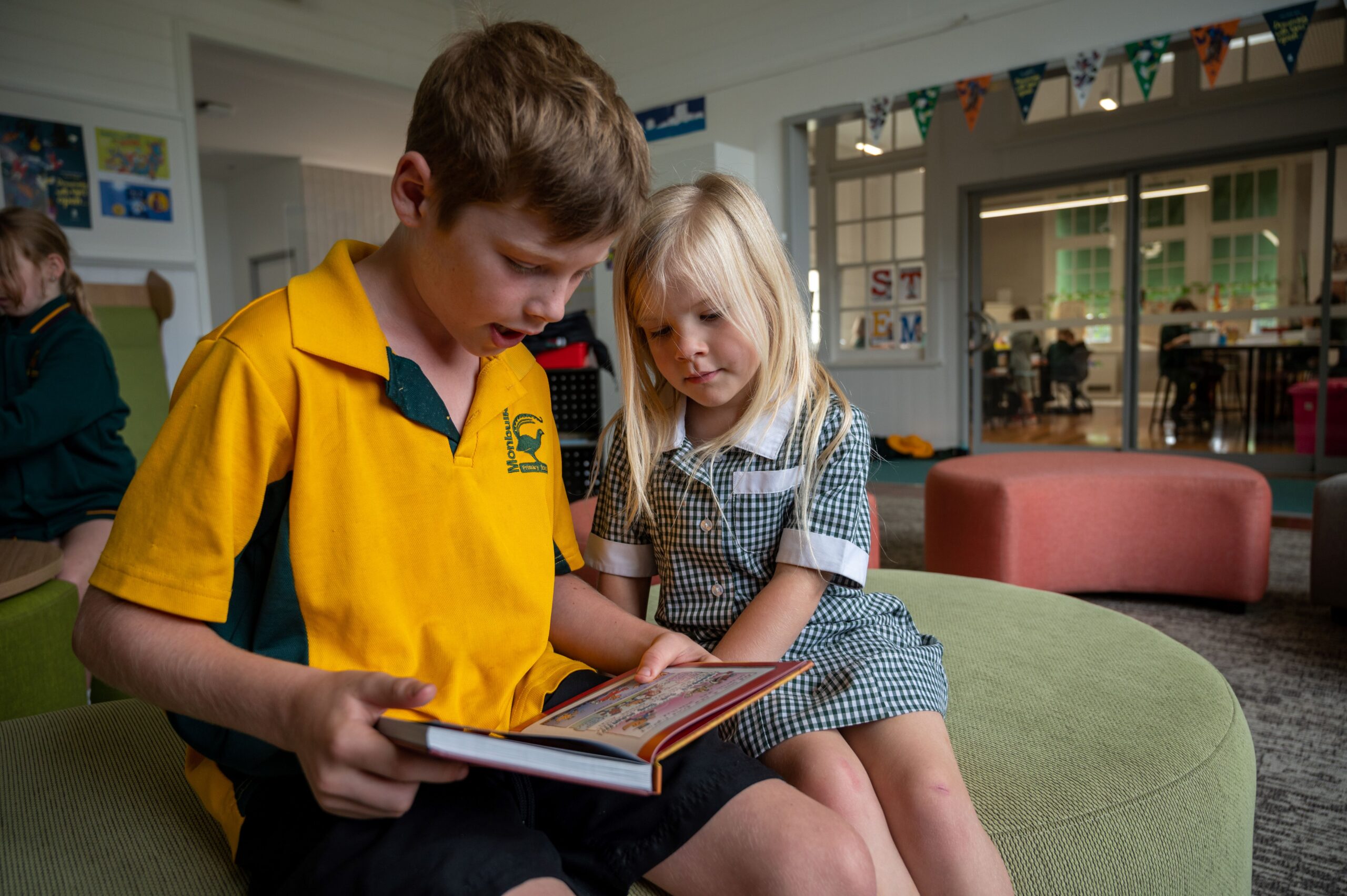
In Literacy we explicitly teach Reading, Writing and Spelling basing our learning on the Workshop Model and we make sure that we cater to the needs of all of our students. In the Workshop Model the mini-lesson at the start of the learning clearly sets out what we’re learning and why, and how we will know when we have achieved it. Students work in groups and independently, and share their learning at the end of the lesson.
We teach Writing focusing on the 6+1 Traits of Writing. Students are taught to consider their ideas, sentence fluency, organisation, word choice, voice, conventions and presentation in their writing pieces.
In Reading, we focus on students understanding how to select a Just Right book to enable them to learn from their reading experience. Students develop accuracy and comprehension skills through mini-lesson, independent work and conferencing with their teacher. They track their thinking as they read in a Reader’s Notebook whilst focusing on comprehension strategies, thinking within, beyond and about the text. Our early years reading program is heavily based on a phonics approach to develop phonological awareness and decoding skills.
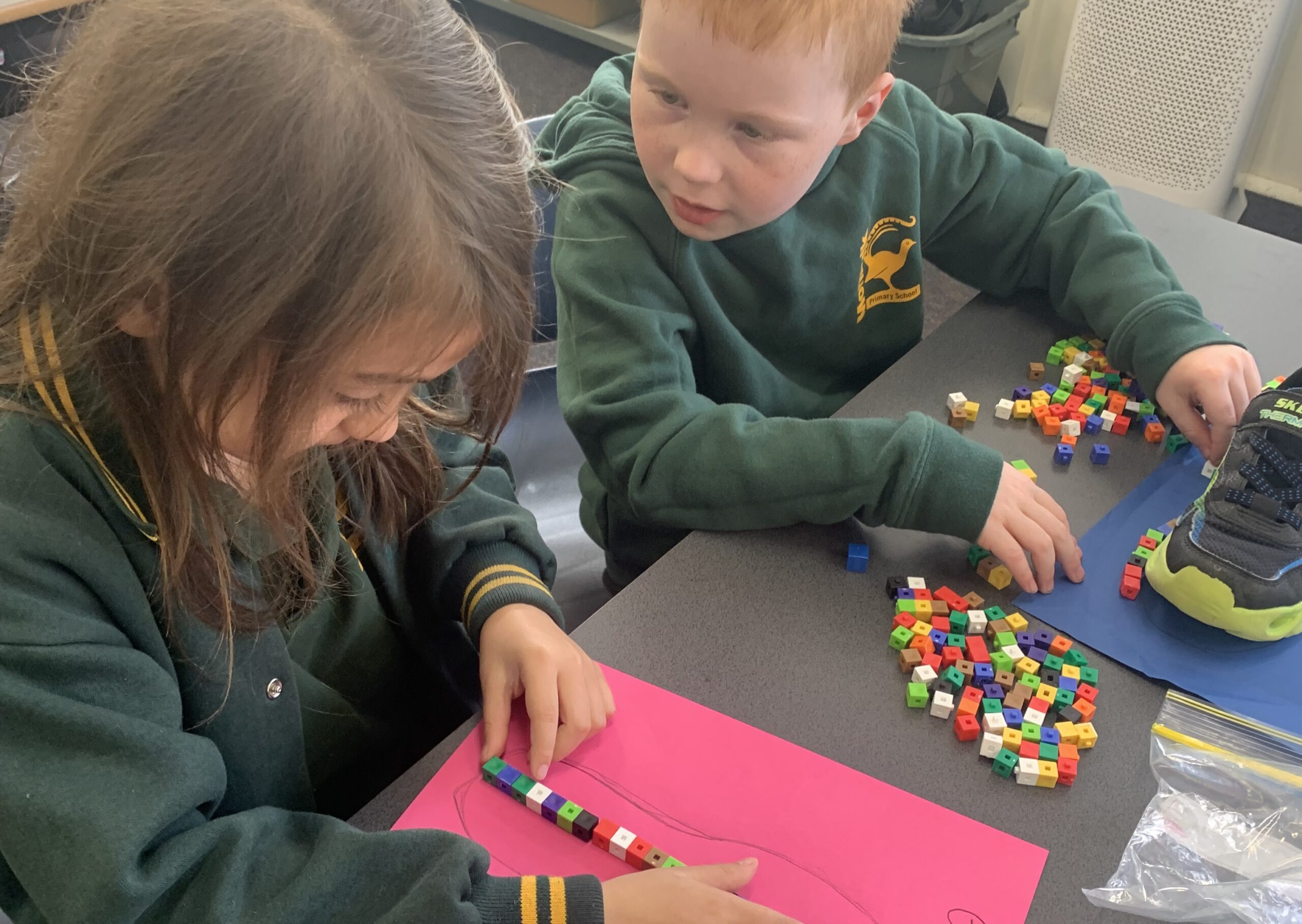
Mathematics
Mathematics
Monbulk Primary School Maths Vision – In Maths, students are supported to learn together through meaningful challenges that ensure everyone achieves success.
At MPS we aim to provide a meaningful Numeracy program that is based on best practice and current research. We recognise that students learn best when they are engaged in rich and meaningful tasks. Students are supported to lead their own learning through the asking of questions, by taking risks and being curious. They have the opportunity to make connections and model their understanding using a variety of representations and hands-on learning materials. Throughout sessions, students participate in discussions that explain, describe and justify their thinking for themselves and others.
Learning is facilitated through a balanced diet of lesson types. These include; active teaching, purposeful games, open-ended investigations and challenging mathematical tasks. These lessons often relate to real world situations that allow for the implementation of problem solving, fluency, understanding and reasoning to support the development of well rounded mathematicians.
At MPS we strive to improve educational outcomes, foster a love of Numeracy and cultivate students to be proficient mathematicians.
If you wish to discuss our numeracy program, or are seeking advice as to what you can do at home, then we are happy to discuss it with you.
Links to support Numeracy at home:
Mathematics and numeracy at home
Resources for parents- Maths Association of Victoria
Flip Make Play Cards – Parent/Carer Guide
YouCubed – 6 ways to Support Your Child’s Mathematical Development – Prof. Jo Boaler
Our Maths Lesson Approach
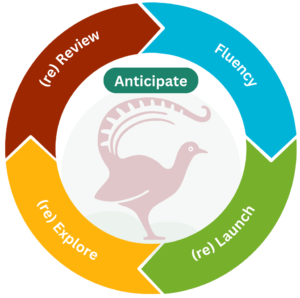

The Victorian Department of Education and Training (DET) program selected Monbulk Primary School to participate in a Primary Mathematics (PMSS) initiative. During 2023 and 2024, the initiative upskilled two MPS teachers to become mathematics education specialists. These specialists have provided professional development, mentoring and coaching for all teaching staff, to further enhance the delivery of the mathematics curriculum at Monbulk Primary School.
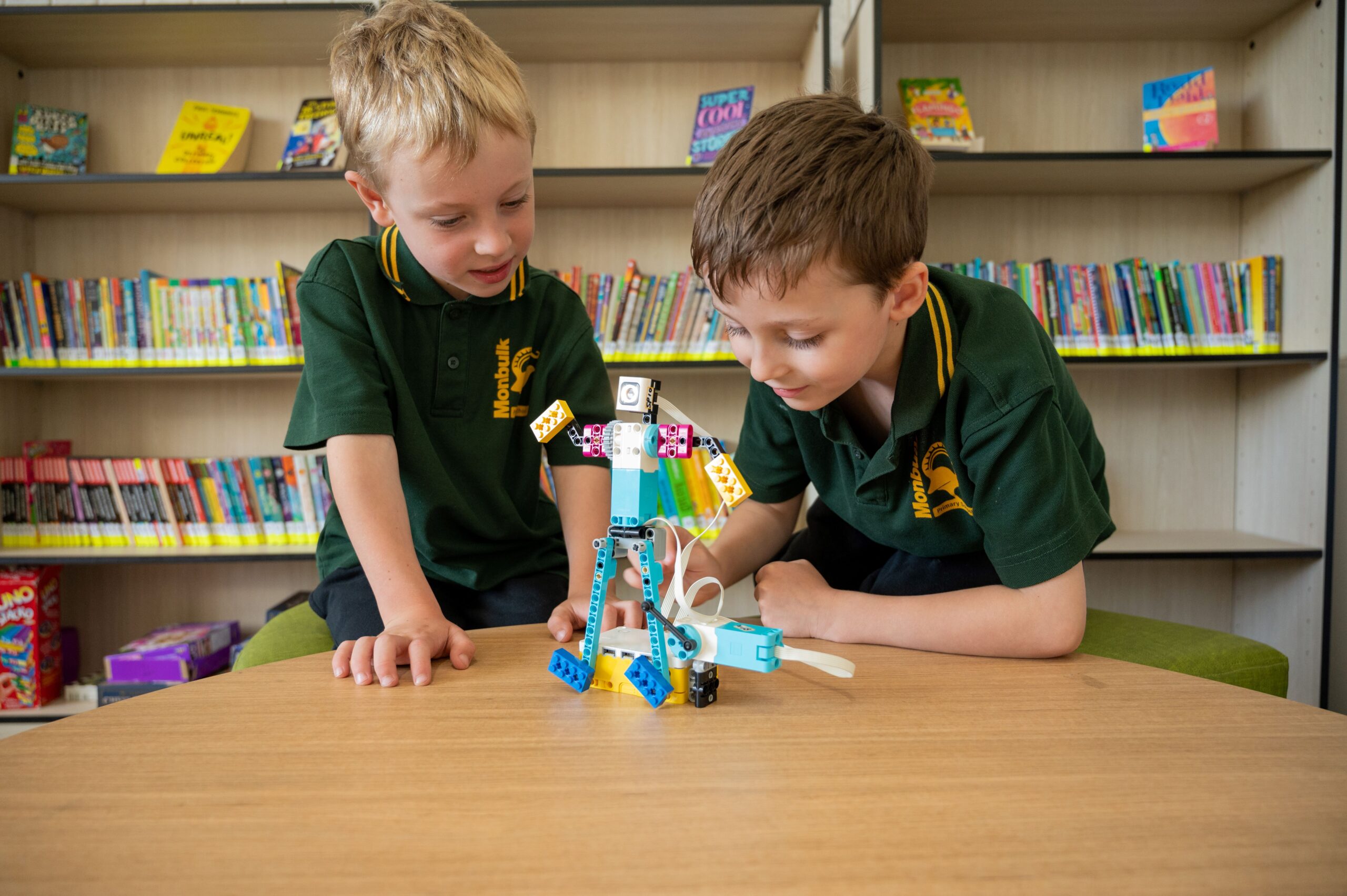
Humanities and Science
Our whole school learning sequence takes students on a journey through topics in Geography, History, and Science. Students develop information literacy and critical thinking skills as they learn about the natural world and how we live in the world. It also develops problem-solving abilities and skills for lifelong learning. Students work co-operatively and collaboratively to solve problems.
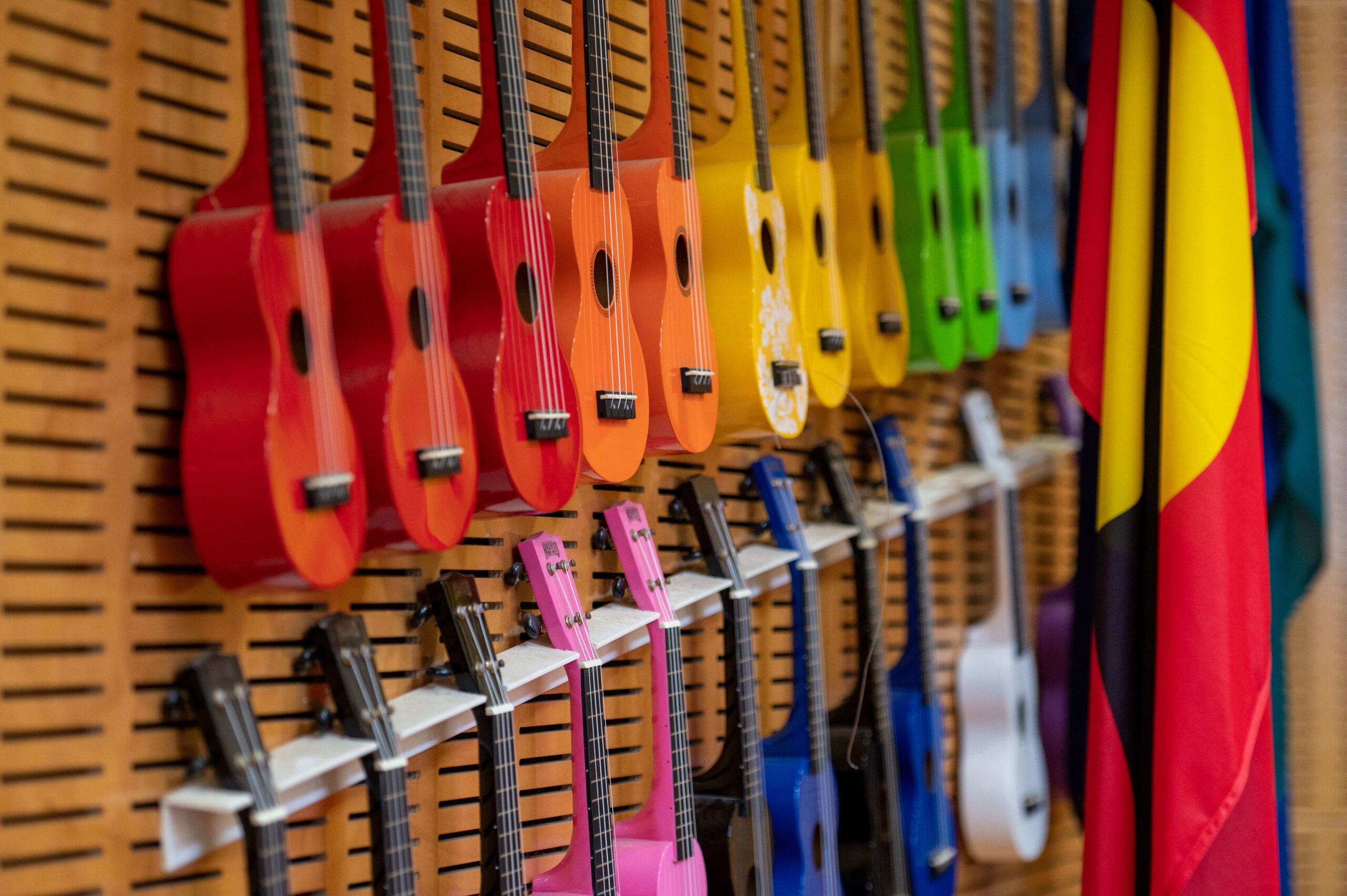
Specialist Program
At Monbulk Primary School, our rich Specialist program supports children to develop and discover a wide range of skills and experiences. Students take each Specialist class once a week. Our Specialist classes are Auslan, Physical Education, Visual & Performing Arts, STEM, and the Stephanie Alexander Kitchen Garden for Gr 3-6.
Auslan
Students learn Auslan as a second language through finger spelling, vocabulary words, and communication games. We also develop our understanding of deaf culture and inclusion. Children build their knowledge of signs and communication, and demonstrate their skills at assemblies.
Physical Education
Students participate in PE and develop the movement skills and participate in a range of physical activities. These include team ball sports such as Netball and Basketball, athletics events, racquet and bat sports, and running, jumping and balance movement activities.
Students can choose to participate in the inter-school sport competitions including Cross Country, Athletics, Basketball, Netball, Cricket, and Soccer. Our House Athletics Carnival is held every year and is a wonderful day of sport and fun.
Visual & Performing Arts
Children learn Music, Drawing & Painting, Drama and Dance.
Every second year we hold a whole school Production, and every student participates through song, dance and drama. In these years our Arts program is more heavily focussed on Dance and Drama with Music. In the alternate year students develop their Visual Arts skills, alongside Music. Students can also access individual private music lessons for an additional fee by contacting the front office.
STEM
Science, Technology, Engineering & Maths (STEM) is a multidisciplinary subject which develops student’s collaboration, communication, creativity, and critical thinking through tasks and challenges. These include programming, coding, and building projects to solve challenges and problems. Students also complete 3D printing design activities, and can compete in the Lego Spike Prime competition.

